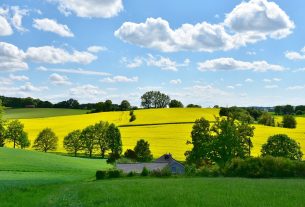Journal of Applied Ecology offers a two-year mentoring opportunity for early career researchers to gain experience of the Associate Editor role. Each mentee works with one of our Senior Editor and also receives on-going support from the Editorial Office. Mentees have a great opportunity to learn more about the peer review process and publishing more widely through handling submissions to the journal.
In 2025, we’re thrilled to be welcoming five Associate Editor mentees to the Journal of Applied Ecology team. You can get to know them below.
Arman Pili
University of Potsdam
Arman is a quantitative and applied global change ecologist. His research fixation is on developing scientifically defensible, statistically robust, and accessible decision-support tools for biodiversity conservation. His past and current research heavily focuses on understanding, predicting, and responding to current and future risks of biological invasions. Arman is also involved in developing indicators and metrics that use big open biodiversity data to monitor biodiversity. He hopes to expand his research scope into other anthropogenic drivers of global change.
Álvaro Gaytán
Spanish National Research Council
Álvaro is a community ecologist with a broad interest in plant-based species interactions. His research focuses on forest conservation and how global change drivers —like temperature variations, drought, and exotic pathogens— affect these interactions. By studying these factors, he aims to develop strategies for sustainable forest management and resilience against environmental challenges.
André Coutinho
Universidade Federal do Paraná
André is interested in the intersection between restoration ecology and functional trait ecology. His research focuses on applying trait-based approaches to enhance the restoration of ecosystem services and biodiversity. Currently, he is developing tools to identify species combinations that can effectively restore carbon, biodiversity, and multifunctionality. Additionally, André studies how species interactions, particularly priority effects, affect succession and community assembly to improve restoration efforts.
Manvi Sharma
Ashoka University
Manvi is interested in exploring the diversity of traits in both predators and prey, and how biological communities interact and form. By drawing on methods from behavioural, population, and community ecology, she aims to understand how animals exhibit a wide range of responses to the challenges they face. Manvi’s research has focused on carnivore ecology, particularly in the Indian Himalaya, where she uses interdisciplinary approaches to better understand and manage the dynamics between carnivores and human populations.
Emilio Williams-Subiza
Mountain and Patagonian Steppe Research Centre (CIEMEP)
Emilio is a freshwater ecologist based in Argentina, focused on understanding the causes of biodiversity change in aquatic ecosystems and in its impacts on both ecosystems and society. His research integrates techniques and knowledge from biodiversity science, community ecology, and macroecology to support policies that mitigate the impacts of the biodiversity crisis and global change. He is particularly interested in urban streams, climate change, and biodiversity-ecosystem function relationships.
For more information on the scheme you can click here and read previous testimonials here. Please note that applications for the 2026 cohort will not open until September 2025.





